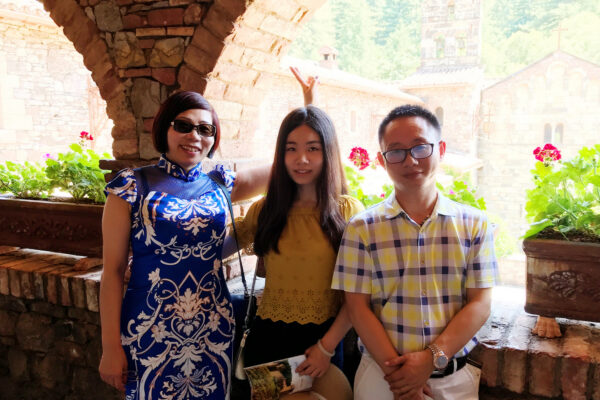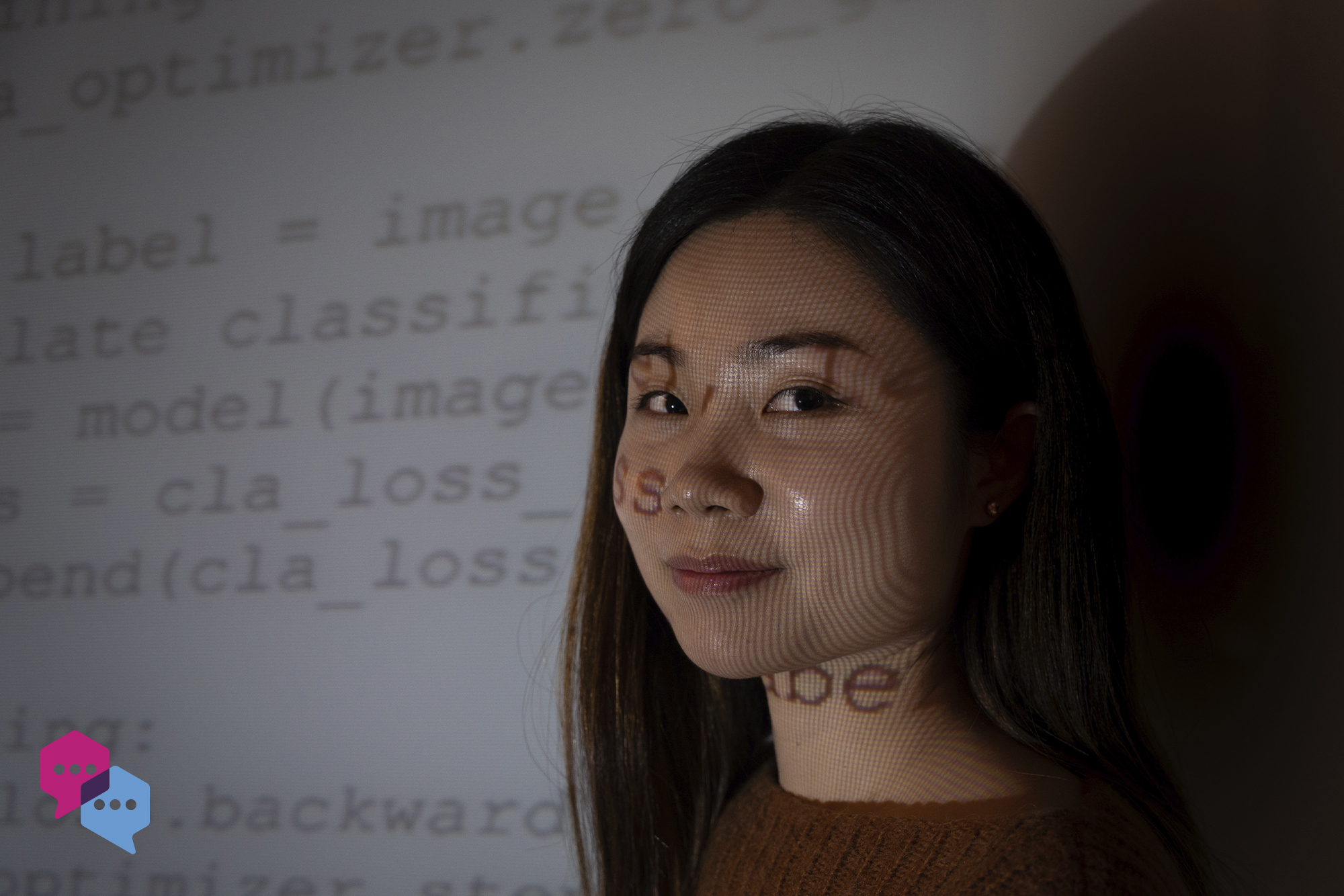Q: When you were a child, what was your response to this question: “What do you want to be when you grow up?”
A: When I was around 7 years old, my father bought me a book series, “Five Thousand Years of Chinese Nation,” as a birthday gift. It stimulated my interest in ancient civilizations. So, when I was young, I wanted to be an archaeologist, rediscovering our history. Even now, I’m still very interested in it.
Q: Share the pivotal moment in your life that helped you choose your field of study.
A: To be honest, I chose materials chemistry when I applied to college. But I was reallocated to business school by the admission committee. Then, I selected statistics as my major. I really appreciate that adjustment at this moment because I found out that statisticians can work with people from different fields.

In 2017, Li (center) went on a winery tour of Napa Valley with her parents.
Q: Tell us about a time you encountered a tricky problem. How did you handle it and what did you learn from it?
A: Before I started doing research, I had never taken any coding classes — and the projects I work on need strong coding skill to implement the methods. I only knew a little bit of R, a programming language. The first project I worked on required me to implement our method into a program called MATLAB and make it faster so that it can work on large datasets, with limited time. I learned MATLAB online via video tutorials and completed the task. Later, when I needed to learn Python, C++, and other things, I searched online for resources. I think this is amazing. Technology is changing our lives in many ways, including the way we learn.
Q: Describe your research in 5 words.
A: AI can be easily fooled.
Q: What are your passions outside of research?
A: Reading, traveling, snowboarding, and board games. Reading is an easy and affordable way to experience different lives. Travel is the opportunity to have new experiences and witness different cultures. Both expand the limits of my life.


